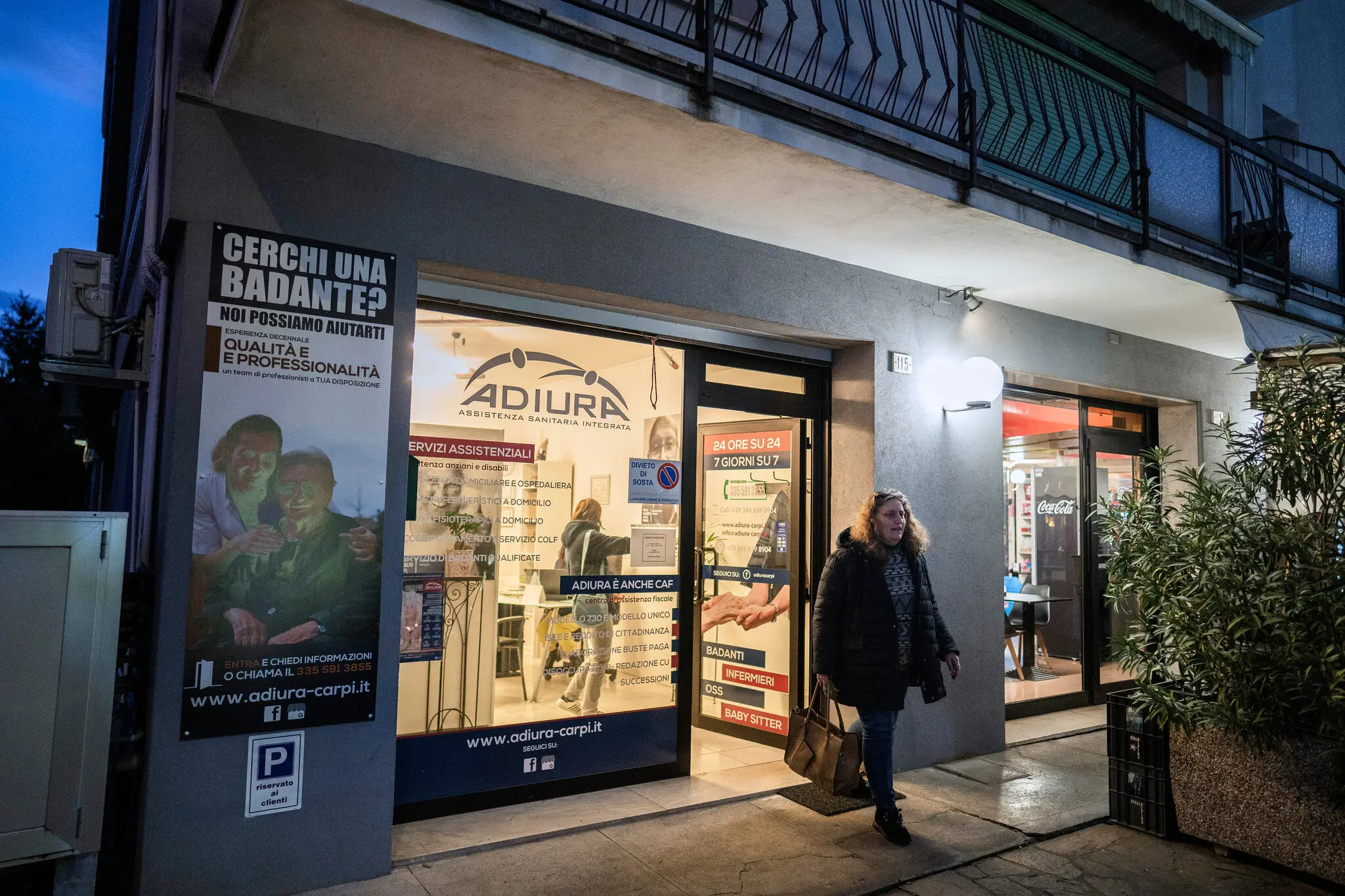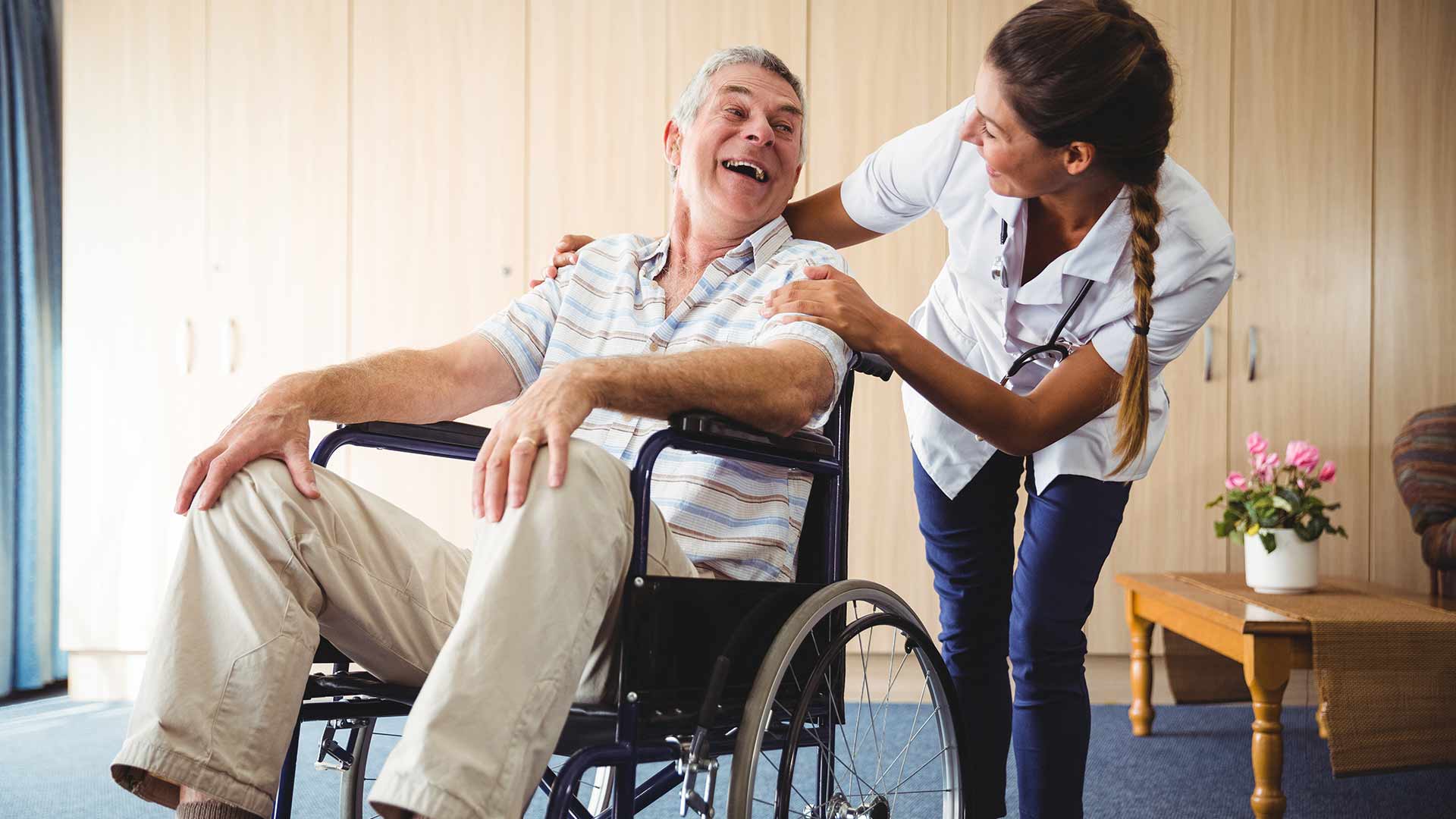
Gen
Aprire una Casa Famiglia per Anziani
Aprire una Casa Famiglia per Anziani: Guida Completa al Franchising di Successo. Il settore delle case famiglia per anziani sta vivendo una crescita significativa, offrendo opportunità...

Aprire una Casa Famiglia per Anziani: Guida Completa al Franchising di Successo. Il settore delle case famiglia per anziani sta vivendo una crescita significativa, offrendo opportunità...

Il franchising per le RSA: Il settore delle residenze sanitarie assistenziali (RSA) è in costante crescita e il franchising rappresenta una delle opzioni più interessanti...

Franchising nell'Assistenza Domiciliare per Anziani Negli ultimi anni, il settore dell'assistenza domiciliare per anziani ha conosciuto un'espansione senza precedenti. Questa crescita è stata guidata da una...

Apri un Franchising di Assistenza Domiciliare Aprire un'agenzia in franchising è una scelta imprenditoriale vantaggiosa e di successo per coloro che desiderano avviare un'attività con il...

In Emilia-Romagna, the region that includes Carpi, there are also plans to create a work force of those with experience caring for their own family members who can ultimately, when their own loved ones die, be employed to care for others.
“There is an enormous demand,” Ms. Ligabue said.
This week, Prime Minister Giorgia Meloni celebrated passage of a new law intended to streamline access to services for the elderly and to bring greater government engagement in the growing field of long-term care.
But the law does not include specific measures to support family caregivers. Alessandra Locatelli, Italy’s minister for disabilities, explained that the government did not want to prioritize Italians who cared for older family members over those who tended to younger disabled ones.
She said she expected a new measure by the end of the year to provide tax breaks and other benefits for “live-in family caregivers” for “all of the types of non-self-sufficient people.”
But the meeting in Carpi made clear that many Italians do not necessarily live with the parents and grandparents they care for. Some of those women were already looking beyond the government for help — to machines.
As Nao, the posture-performing robot from France, made herky-jerky movements on the desk, Leonardo Saponaro, a psychology student who ran the focus group and whose grandfather outside Rome had dementia, explained that the robot wasn’t “a replacement for socializing with other people.”
“It can nevertheless be company,” he said.

Still, the caregivers were tentative. First, they wanted to check that the friendly-looking robot, whose eyes lit up with orange, yellow and magenta lights when they got answers right, would do no harm.
Ms. Poli wanted to make sure that none of its materials would interfere with a pacemaker. Viviana Casella, 58, a widow who looks after a father with dementia, asked whether there were robots that could physically move a person from the couch to the bed, a question that prompted some nightmare scenarios.
“I’d pull the plug,” Franca Barbieri, 69, said from the back of the room.
One caretaker asked whether the robot knew how to listen, because older people tell stories. Ms. Casella asked whether the robot could give a caretaker a break, “maybe to go food shopping.”
The robot’s operators assured the caregivers that the robot could help, but mostly in the realm of mental stimulation. Nao played a song and asked Ms. Casella to identify the singer. “Little Tony,” she said.
“Is tiramisu a sweet or a savory?” it quizzed Daniela Cottafavi, 65. “Romulus or Remus was the first king of Rome?”
When it had problems deciphering answers, something the students chalked up to different dialects, Ms. Cottafavi shouted, “We need to give it a hearing aid!”
By the end of the session, it had clearly won some of the caregivers over.
“You want to hug it,” said Annarita Caliumi.
Many, like Mara Poggi, 51, a mother of two who also cares for her 71-year-old mother who has dementia, were not persuaded that a robot could be a substitute for human contact.

That morning Ms. Poggi had fought with her mother, who resisted being dropped off at the senior center, while pausing to take a call from her 14-year-old son who was “having problems” at school, she said. She went to work at the knitwear factory, where many colleagues discussed similar situations over coffee breaks.
“I feel like slice of prosciutto in between two pieces of bread,” she said. “Squished.”
After consoling another exhausted caregiver at the afternoon meeting, she drove to a local Badanti center to interview a woman who could possibly help her mother out. The Badanti are “our oxygen tanks,” she said.
Then she went back to her car and girded for another tough day.
“That robot is more for me than for my mother,” she said. “My mother would throw it in the garbage. It will be my companion.”

Jason Horowitz is the Rome bureau chief, covering Italy, the Vatican, Greece and other parts of Southern Europe. He previously covered the 2016 presidential campaign, the Obama administration and Congress, with an emphasis on political profiles and features. @jasondhorowitz

Abbiamo visto quali sono gli elementi base di un rapporto di affiliazione. Si può affermare che il franchising riduce i rischi per chi voglia intraprendere...

FORMULA WEB AGENCY Adiura Web Agency è un format innovativo che si propone l’obiettivo di avvicinare e sensibilizzare i giovani delle regioni del Sud Italia al...

Con la proroga dei termini per la presentazione delle domande di reddito di emergenza, fino alla data del 31 luglio del 2020, l'Inps erogherà ai...

nidi: LA REGIONE PUGLIA FINANZIA LA TUA NUOVA IMPRESA. L’iniziativa viene attuata da Puglia Sviluppo S.p.A. – società interamente partecipata dalla Regione Puglia – con il...

PERCHE’ AFFIDARSI A UN’AGENZIA PER LA RICERCA DEL PERSONALE ASSISTENZIALE. Ecco 4 buoni motivi per rivolgersi a un’agenzia invece che al “fai da te” o alle...